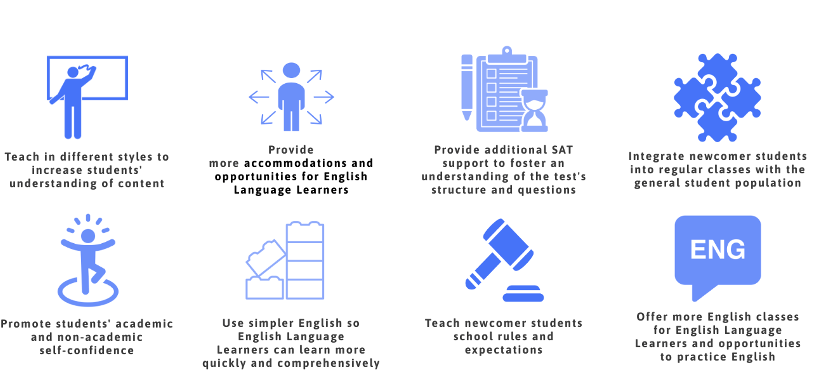Setting
With the Detroit Metropolitan area being home to the second largest population of Arabs and Arab-Americans in the US, this site was unique due to its relatively high percentage of Arab immigrant, refugee, and asylum-seeking students. The three Global Educational Excellence (GEE) high schools in this study serve approximately 2,000 students, with the majority of their students identifying as Arab.
Quantitative Findings: Mental Health & Psychosocial Outcomes
Quantitative analyses explored differences between two groups: (1) students who were born in the US to immigrant families and (2) students born outside the US. A total of 176 students participated in the survey, 85 of whom were born outside the US; among this group, 69 students were born in Arab-majority countries.
Overall, students from conflict-affected countries in the Middle East and North Africa region exhibited statistically similar outcomes of mental health and psychosocial wellbeing as compared to their US-born peers. Qualitative findings and insights from the literature suggest that, because the Detroit area serves as an Arab enclave, both immigrant and first-generation students of Arab descent are supported by the culturally protective factors in their environments.

Qualitative Findings: Key Themes
English Language Fluency: Students described considerable difficulty learning English, which undermined their educational opportunities and ability to develop relationships with their U.S.-born peers.
Acculturation Stressors & Strategies: Schools used a variety of strategies to ease newcomer families’ adjustment to life in the U.S. while simultaneously incorporating their cultural practices to create bi-directional integration.
Support from Arab Ethnic Enclave: Newcomer families found some aspects of their adjustment to have been easier due to their emigration to the Detroit Metropolitan area, home to one of the largest Arab-American populations in the U.S.
Teacher Support: Newcomer students expressed the importance of having teachers to demonstrated patience, compassion, and encouragement as being vital to their educational, social, and emotional well-being.
Participatory Ranking Method Results
The focus group discussions with students included a participatory ranking exercise in which they were asked to list and prioritize ideas related to what it means to feel supported by a school. Below are the top results for the eight FGDs held with three GEE schools in Michigan:
